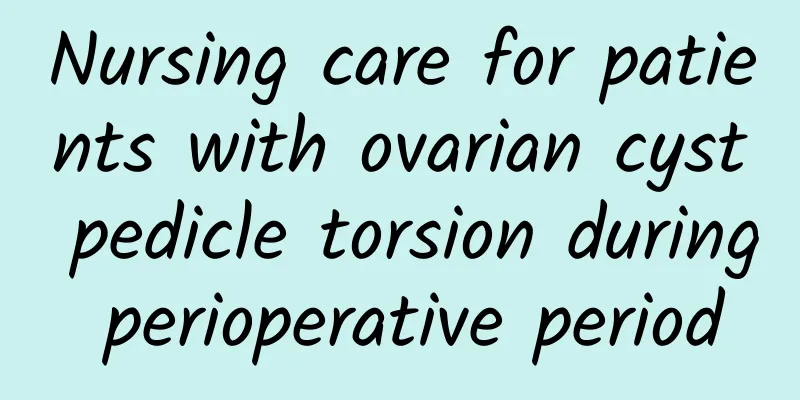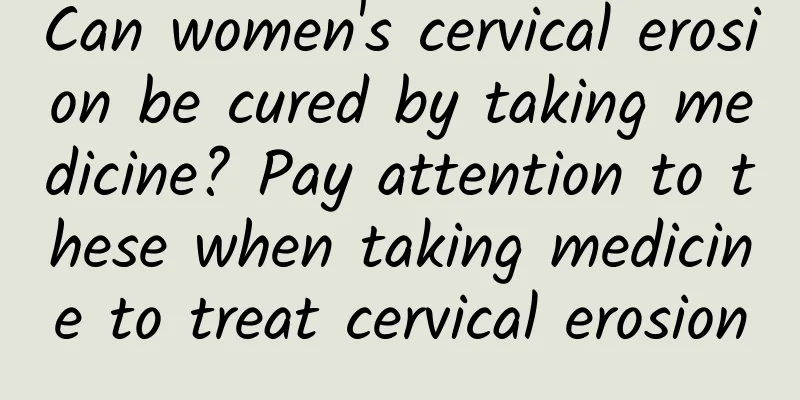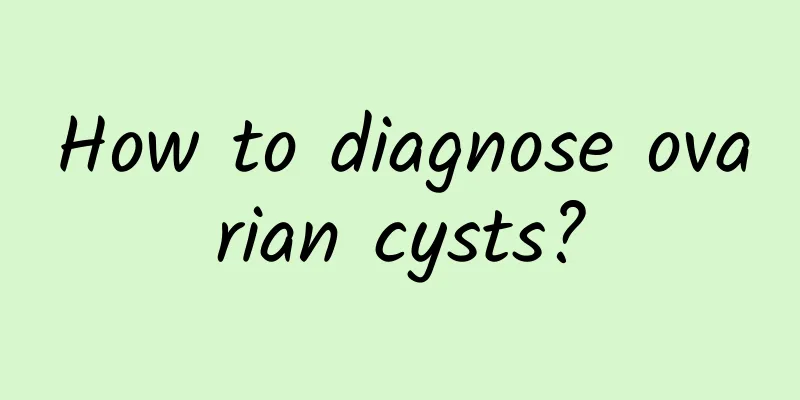Nursing care for patients with ovarian cyst pedicle torsion during perioperative period

|
Ovarian cyst pedicle torsion refers to the twisting of the blood vessels supplying the ovarian cyst, which causes ischemia of the ovarian cyst, or even necrosis and rupture, causing severe abdominal pain. About 10% of ovarian cysts have pedicle torsion. Proper care of patients in all aspects during the perioperative period will help the surgery go smoothly and the patient's body recover as soon as possible after the operation. 1. Preoperative psychological care Preoperative care includes psychological counseling for both medical staff and family members. Medical staff should introduce the hospital environment and surgical conditions to patients in a friendly manner, provide positive medical and health education on ovarian cysts, and guide patients to treat the disease correctly and cooperate with relevant treatments. Family members should pay more attention to and support patients, relieve pain, irritability and fear of surgery caused by pedicle torsion, and a relaxed and optimistic attitude will help the smooth progress of the operation. 2. Intraoperative care Intraoperative care mainly reflects the humanistic care of medical staff. After entering the operating room, do not discuss the patient's condition casually, control the humidity, temperature and other conditions of the operating room, assist patients in maintaining and fixing their positions during anesthesia, touch the patient's hands and face soothingly, ask the patient how they feel, relieve the patient's tension, encourage the patient to face the operation bravely, and strengthen the patient's confidence in the operation. Pay attention to observe changes in the patient's cognitive perception, consciousness state, sensory movement, etc., and cover the patient as much as possible during the operation to reduce unnecessary exposure. 3. Postoperative Care After surgery, the patient's vital signs should be closely observed, the patient should be sent back to the ward smoothly, the handover should be done well, the patient's family should be informed of the success of the operation, and their psychological pressure should be relieved. If the patient still feels pain after surgery, the family should understand the patient's psychological state and needs, chat with the patient more, divert the patient's attention, and change the body position to relieve the pain. Use painkillers when necessary, assist the patient to adopt a comfortable position, and actively prevent complications such as urinary retention, constipation, nausea and vomiting. |
<<: Dietary care for patients with irregular menstruation
>>: 5 reasons that cause uterine fibroids
Recommend
The more probiotics a person contains, the better? Debunking 4 common myths
A healthy intestine keeps you young! In recent ye...
How many years can I live with vulvar leukoplakia?
Vulvar leukoplakia is a chronic skin disease that...
Experts explain the main symptoms of vulvar leukoplakia
Vulvar leukoplakia is a gynecological disease tha...
Will cervicitis delay menstruation? How can women prevent cervicitis?
Cervicitis is one of the common gynecological inf...
Please pay attention to the causes of pelvic inflammatory disease
Pelvic inflammatory disease is a very common gyne...
What are the early symptoms of cervical erosion?
What are the early symptoms of cervical erosion? ...
How to squeeze out a ruptured Bartholin's gland cyst
If a Bartholin's gland cyst ruptures, it is n...
What are the changes in menstruation before menopause?
The main manifestations of menstrual changes befo...
Consume 70 calories from cola and run for 9 minutes
If the cola is converted into calories, how much ...
What are the main symptoms of cervicitis?
Cervicitis is also a type of gynecological diseas...
Does cervical precancerous lesion of grade II require chemotherapy?
Does the second-grade cervical precancer require ...
What effect does Panax notoginseng have on uterine fibroids? Can Panax notoginseng treat uterine fibroids?
What effect does Panax notoginseng have on uterin...
Experts introduce the clinical symptoms of uterine fibroids
Uterine fibroids are a common gynecological tumor...
What are the specific causes of congenital absence of vagina?
The symptoms of congenital absence of vagina have...
What is uterine fibroids with adenomyosis?
Many times, we neglect the health of our female f...









